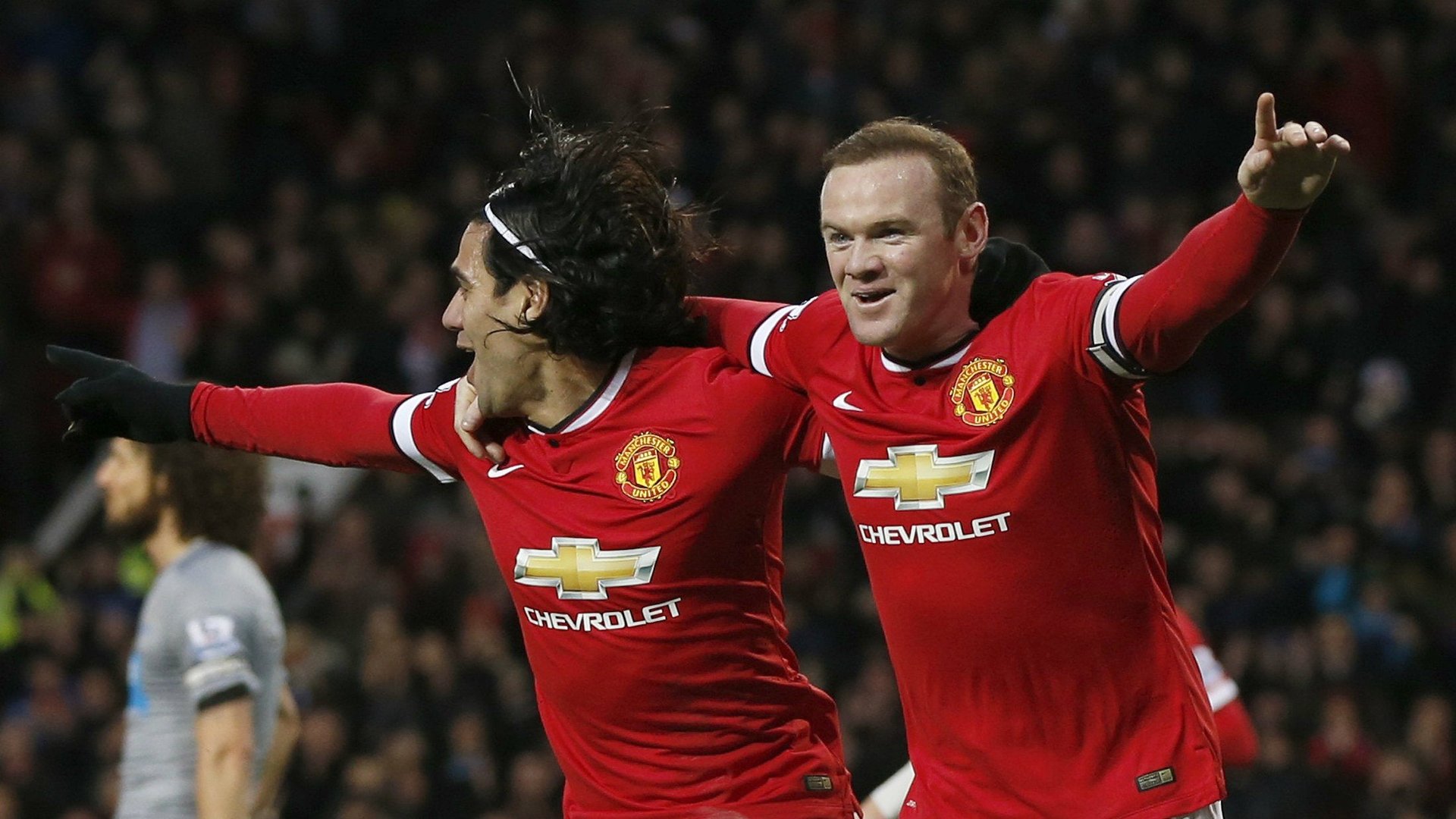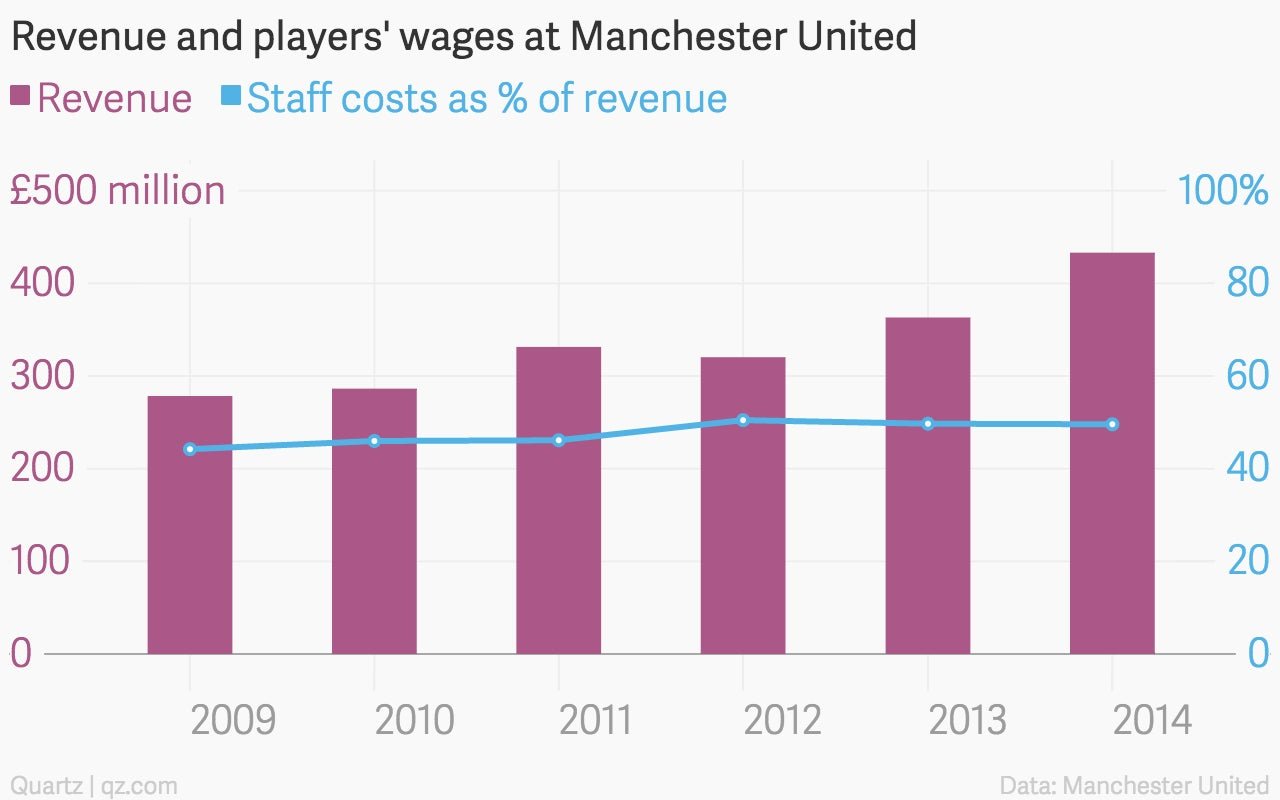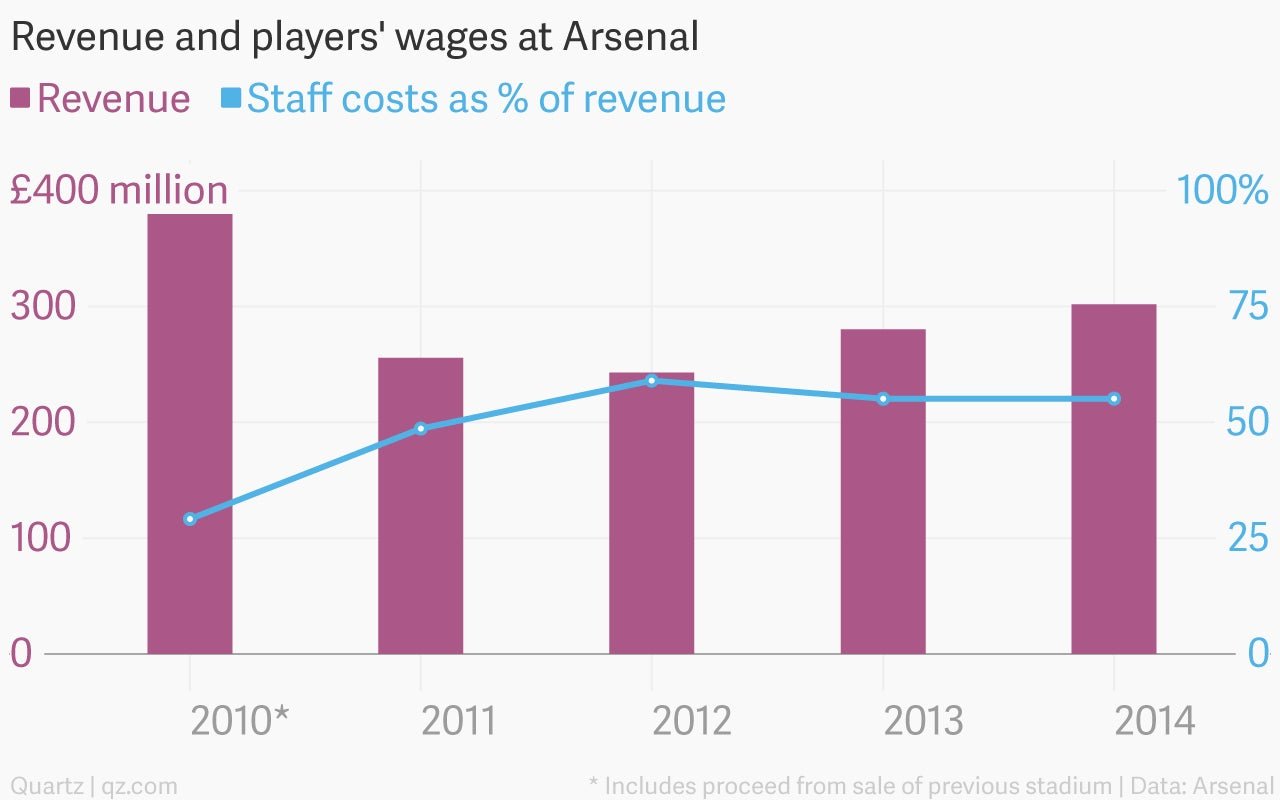The Premier League’s blockbuster broadcast deal is great for players, not so great for fans
Last season, the champion of the English Premier League, Manchester City, was awarded around £97 million ($148 million) from the league’s shared broadcast revenue. Next season, even the bottom-ranked club could make more than that thanks to the blockbuster domestic broadcast deal just announced, worth £5.1 billion over three years (a 70% jump from the current deal).


Last season, the champion of the English Premier League, Manchester City, was awarded around £97 million ($148 million) from the league’s shared broadcast revenue. Next season, even the bottom-ranked club could make more than that thanks to the blockbuster domestic broadcast deal just announced, worth £5.1 billion over three years (a 70% jump from the current deal).
But whether the windfall will actually translate into bigger club profits is doubtful. Running a Premier League team is, more often than not, a money-losing proposition—combined, the league’s clubs often lose hundred of millions of pounds each season.
It is the players—and their agents—who are the biggest winners from the league’s ever-rising broadcast deals. In recent seasons, player wages have accounted for a whopping 70% of league revenue. With assorted plutocrats and oligarchs running several clubs as vanity projects instead of commercially-minded enterprises, the competition for top talent is fierce, and expensive.
The finances of two of the league’s better-run clubs, Arsenal and Manchester United, show this dynamic in action—player costs move in lockstep with revenue, regardless of conditions. The same certainly can’t be said for ticket prices and TV subscription fees.

